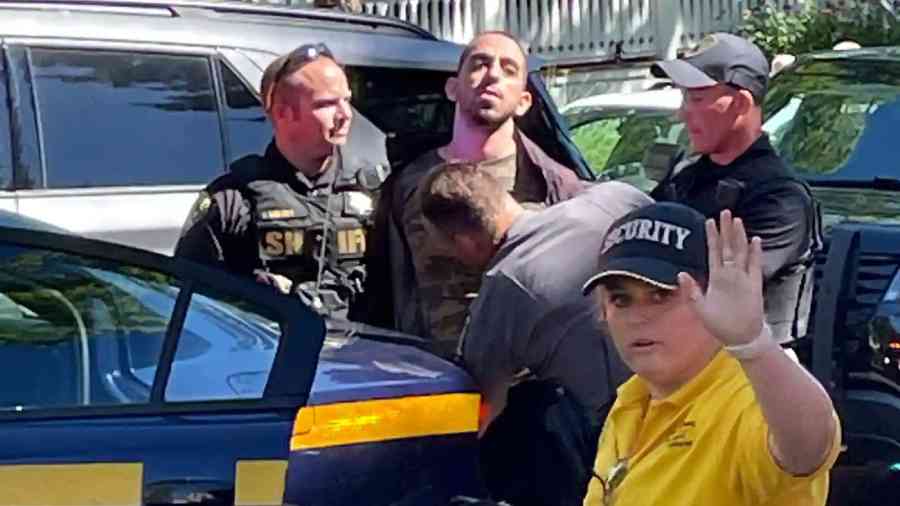The authorities in New York state identified Salman Rushdie’s attacker as Hadi Matar, a 24-year-old New Jersey man.
According to Major Eugene J. Staniszewski of the New York State Police, the suspect, whom he identified as Matar, jumped onto the stage and attacked Rushdie, stabbing the 75-year-old writer at least once in the neck and at least once in the abdomen.
Matar had a pass to get into the grounds of the Chautauqua Institution where Rushdie was to deliver a lecture, just as other guests did, according to the institution’s president, Michael Hill.
Major Staniszewski said Matar’s motive was still unknown as of the late afternoon on Friday. He said that his agency was investigating the attack with the FBI and the local sheriff’s office.
The authorities were in the process of obtaining search warrants for a backpack and for electronic devices that were found at the institution.
There was no immediate indication that Matar, who lives in Fairview, New Jersey, had worked with anyone else, Major Staniszewski said, and his nationality was not yet known.
Rushdie was treated by a doctor in the audience until emergency medical services arrived, Major Staniszewski said. He said that Rushdie had been taken to a local trauma centre.
A backpack apparently belonging to the attacker was checked by a bomb squad, Major Staniszewski said and was found to be safe. Its contents will be investigated.
A preliminary law enforcement review of Matar’s social media accounts showed he was sympathetic to Shia extremism and Islamic Revolutionary Guard Corps (IRGC) causes, NBC New York reported, citing an unnamed law enforcement official familiar with the investigation into the attack.
Matar was born in California and recently moved to New Jersey, the NBC New York report said, adding that he had a fake driver’s licence on him. FBI officials went to his last listed address, in Fairview, a Bergen County borough just across the Hudson river from Manhattan, on Friday evening, NBC New York reported.
New York and New Jersey police did not immediately respond to a request for comment on the NBC New York report. NBC New York said the official told it that there were no definitive links established to the IRGC, but the initial assessment indicated the suspect was sympathetic to the Iranian government group.
The IRGC is a powerful faction that controls a business empire as well as elite armed and intelligence forces that Washington accuses of carrying out a global extremist campaign.
There has been no official government reaction in Iran to the attack on Rushdie, but several hardline Iranian newspapers expressed praise for his assailant.
Ali Tehfe, mayor of Yaroun in the south of Lebanon, said that the suspect was the son of a man from the town. They emigrated to the US and he was born and raised there.
Asked if the suspect or his parents were affiliated with the Hezbollah in Lebanon, Tehfe said he had “no information at all” on their political views.
New York Times News Service and Reuters
Death sentence
Salman Rushdie has been living under a death sentence since 1989, about six months after the publication of his novel The Satanic Verses.
Ayatollah Ruhollah Khomeini, the Supreme Leader of Iran after the 1979 Iranian Revolution, issued a fatwa on February 14, 1989, ordering Muslims to kill Rushdie.
Rushdie, who lived in London at the time, immediately went into hiding with 24-hour protection from the British police, moving every three days from place to place until a fortified safe house was prepared for him. He lived there for most of the next 10 years.
The fatwa was maintained by Iran’s government after the death of Ayatollah Khomeini for 10 years, until 1998, when Iranian President Mohammad Khatami said that Iran no longer supported the killing.
Rushdie then began to make public appearances again. But the fatwa remains in place.
New York Times News Service










